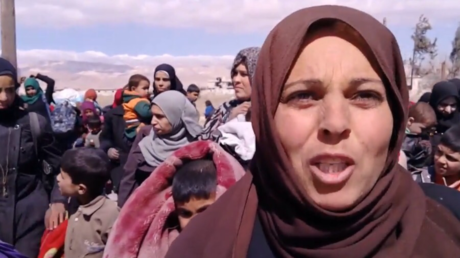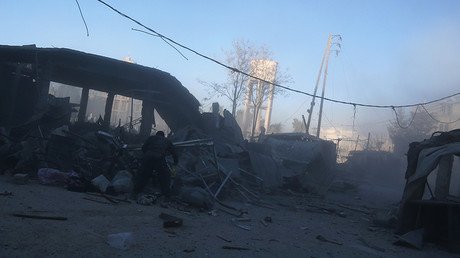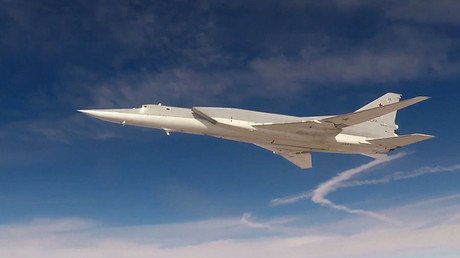Over 30,000 leave militant-controlled E. Ghouta as people continue to flee for safety
More than 30,000 people have left towns in Eastern Ghouta on Saturday morning, the Russian military said. It also set up a livestream showing humanitarian corridors from land and air.
"At the moment 30,000 people have left [Eastern Ghouta]," Maj. Gen. Vladimir Zolotukhin, the spokesman for the Russian Defense Ministry’s Reconciliation Center for Syria, said. He earlier said that "on average over 3,000 people per hour are passing through the humanitarian corridor."
The total number of those evacuated from the besieged enclave has reached nearly 45,000 people, Russian General Staff spokesman General Sergey Rudskoy said on Saturday afternoon.
Numerous accounts of people fleeing the violence in Eastern Ghouta began emerging while Western media remained largely silent on what the civilians had to endure while living under the militants’ rule.
“They fired at us, they did not want us to flee at all, they fired at the car wheels so that we could not flee… There was no flour, no bread, no water at all. They let no one out,” a man filmed near Hush Nasri told RT’s Ruptly video agency.
“They [militants] were living with us, next to our houses and inside them. They would open a road amongst the houses to be able to move. They would not leave, and we would not dare to say ‘get out.’ Then the shelling was over and it is us who became part of the human shields. We were not allowed to move,” another woman said.
Militants in Eastern Ghouta have been blocking civilians trying to leave the Damascus suburbs even after the humanitarian corridors were agreed late last month. The daily ceasefires, which began on February 27, have been aimed at allowing civilians to leave the combat zone, but the corridors were often fired at. The Russian military has repeatedly noted that terrorists groups use civilians as human shields, targeting those trying to flee the enclave.
Think your friends would be interested? Share this story!















